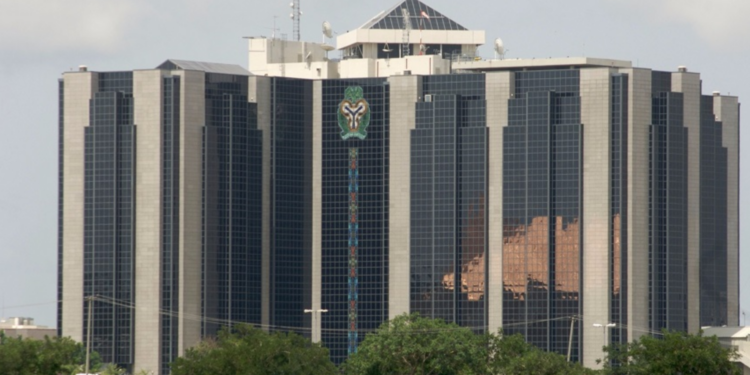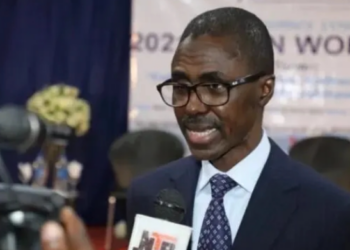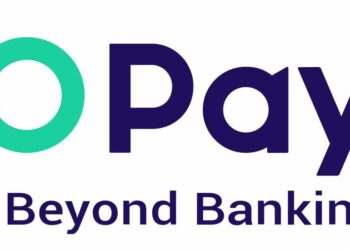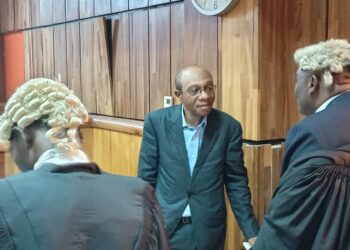The Central Bank of Nigeria (CBN) has announced its intention to carry out a fresh round of banking recapitalization for the Deposit Money Banks (DMBs).
Mr Olayemi Cardoso, the Governor of the Central Bank of Nigeria (CBN), announced on Friday night during the 58th Annual Bankers’ Dinner in Lagos, organized by the Chartered Institute of Bankers of Nigeria (CIBN).
The planned recapitalization means that DMBs will be required to raise additional capital to meet the demands of Nigeria’s economy.
Cardoso highlighted that in his report to the Policy Advisory Council on the national economy, President Bola Ahmed Tinubu set an ambitious target of reaching a $1 trillion Gross Domestic Product (GDP) by 2030.
The report outlined specific priority areas and strategies to achieve this goal.
According to him, banks play a significant part in the envisaged $1 trillion economy by 2030.
What the CBN Governor is Saying
Speaking on the process of recapitalization, Cardoso highlighted the crucial need for banks to be recapitalized, considering the substantial developmental role the apex bank anticipates them to fulfil over the next seven years.
To achieve the target, Cardoso said that Nigeria needed to experience a more rapid and inclusive economic expansion.
- “The administration has already commenced this journey through fiscal reforms, including the removal of petrol subsidies and the unification of the foreign exchange market rate.
- “Considering the policy imperatives and the projected economic growth, it is crucial for us to evaluate the adequacy of our banking industry to serve the envisioned larger economy.
- “It is not just about the stability of the financial system in the present moment, as we have already established that the current assessment shows stability.
- “However, we need to ask ourselves: Will Nigerian banks have sufficient capital relative to the financial system’s needs in servicing a $1.0 trillion economy shortly? In my opinion, the answer is “No!” unless we take action.
- “Therefore, we must make difficult decisions regarding capital adequacy. As a first step, we will be directing banks to increase their capital,’’ he said.
CBN to open OMOs to mop up Liquidity
Furthermore, the CBN governor also announced the approval of another round of Open Market Operations (OMOs) to mop up excess liquidity from the banking system.
OMOs are the primary tool for monetary policy, allowing the central bank to trade securities with financial institutions in open markets.
This strategic buying or selling influences the circulating money supply and/or interest rates.
Cardoso said,
- “An OMO auction was recently held with a top rate of 17.5 per cent for the one-year tenor, attracting oversubscription of N350 billion.
- “Another round of OMO has been approved to further reduce excess liquidity.
- “Offering N108.1 billion worth of Treasury Bills with three tenors to the investing public, which can help reduce liquidity in the banking system and support government fundraising.’’
More Insights
The CBN governor further stated that the monetary policy instruments will be used to curb inflation and stabilize the foreign exchange market, rather than utilized for development financing.
- “The Central Bank of Nigeria is committed to achieving monetary and price stability. This is not just a technical objective, but it has real-life implications for the well-being of our citizens.
- “Through targeted policies, transparent market operations, and coordination between monetary and fiscal authorities, we can ensure a more stable exchange rate, control inflation, and create an enabling environment for businesses and individuals to thrive”, he added.






















Let the projected one trillion dollar GDP target begin to take shape first with measurable indices before you start directing banks to recapitalize which they can do in a jiffy, to avoid them misusing excess investors’ funds after a premature recapitalisation. Meanwhile, the CBN should rather fight and defeat inflation now, which in my opinion is the biggest danger to businesses especially SMEs since it also affects the current cost of funds and raw materials.
Let the governent be sincere on the minimum wage implementation so that the middle income class can boost their savings to be channelled into investment. How about considering FMDQ play a part in equity listing of banks to ameliorate the inefficiencies in NGX otherwise we may witness failed public offers by the banks. New investors avoid NGX like a plaque. Many investors accounts are inactive in CSCS due to lack of confidence in the market from the 2008 meltdown.